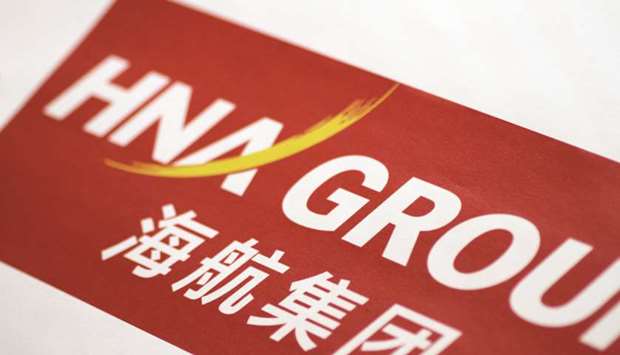A sprawling aviation-to-financial services group, HNA has emerged as China’s most active non-government player in global markets, with deals worth more than $50bn – equal to the annual GDP of Bulgaria.
“This year, the merger and acquisition pace will slow a little for sure,” Adam Tan, HNA Group CEO, told Reuters in a rare media interview.
Political uncertainty in the United States and Europe – such as the upcoming negotiations on Britain’s departure from the European Union – and China’s broad crackdown on capital flight from the country, have changed the climate for HNA’s unbridled growth. “It’s a bit more complicated than before,” Tan said by phone.
Tensions between China and the United States are the biggest risk, said Tan, who received an MBA from St John’s University in New York and studied at Harvard Business School. His comments come amid increasing debate about the United States expanding its vetting process on foreign investment, and tensions over its trade deficit.
“This is a critical relationship,” Tan said. “No good can come from fighting. We can disagree, we can talk, we can negotiate – that’s a family issue. We’re not enemies.”
For HNA, which has accumulated assets even as other Chinese companies find it more difficult to acquire overseas, any pivot in strategy may bring the group more into line with government policy aimed at reducing the amount of money leaving China.
It would also give it more opportunity to digest and rationalise the assets it has bought using often complex bank borrowing and debt arrangements.
Tan spoke to Reuters at a time when HNA’s financing and ownership structure has come under intense scrutiny.
In three years, the group has more than quadrupled its assets, to 1.2tn yuan ($176.12bn) at the end of last year from 266bn yuan at the end of 2013. “The scope of their ambition, the speed of these acquisitions, the enormity of the credit resources at their disposal has put HNA in a different league, where the normal rules of business don’t seem to apply,” said William Kirby, a professor at Harvard Business School who has authored a case study on the group.
Fuelling HNA’s expansion has been the ambition of its founding chairman Chen Feng, at the cost of rising debt.
The group had around $89bn in credit lines from domestic banks at the end of May.
Separately, the group and its subsidiaries have issued more than $10bn in outstanding onshore and offshore debt.
Chen, a former aviation official, told Reuters in 2015 that the global financial crisis had left many assets undervalued, and the way to growth was through deals.
It was, he said then, like the wet market: “You see so many fresh vegetables, you eat here, pick this and that.”
HNA’s top backers include China Development Bank, whose Hainan office in 2012 provided the group with a 100bn-yuan line of credit, along with other Chinese state-owned lenders.
After two significant HNA acquisitions closed in the first quarter of this year, however, some group companies are wrestling with the pace of growth.
At Bohai Capital, a subsidiary responsible for HNA’s leasing assets, loans and bonds outstanding at end-March totalled 232.62bn yuan – more than 600% of net assets. HNA says it currently has debts totalling 710bn yuan.
Launched in 1993 as a fledgling airline in partnership with the Hainan provincial government, HNA today comprises a tangled cross-shareholding web of more than 400 companies, including over a dozen listed on the stock market.
The group remains heavily tied to aviation, holding a key stake in Hainan Airlines, China’s fourth-biggest carrier, and helps operate another 18 airlines, including US business aviation firm Deer Jet and Paris-based Aigle Azur. It also owns a substantial airports and airport servicing business, and Avolon, another subsidiary, is one of the world’s leading aircraft leasing companies, with a fleet of 850 planes.
HNA won’t, though, stop making offshore acquisitions entirely.
International assets are better priced, compared to Chinese domestic assets, and low-cost capital is still available, Tan said.
He refuted any notion that HNA’s deal-making flurry exposed an absence of strategic focus. HNA, he said, is scouting for “undervalued assets”.
So far this year, it has announced equity and asset acquisitions of more than $12bn, indicating it will remain active in key sectors, including financial services.
Among the deals is an offer to buy New Zealand’s UDC Finance from ANZ Banking Group for about $460mn and the acquisition of a 25% stake in Old Mutual’s US fund management arm for $446mn.. HNA also has accumulated a 9.9% stake in Deutsche Bank. Earning over half its revenues with more than 30% of its assets offshore, HNA is big enough to undertake transactions outside China utilising offshore structures, Tan said.

